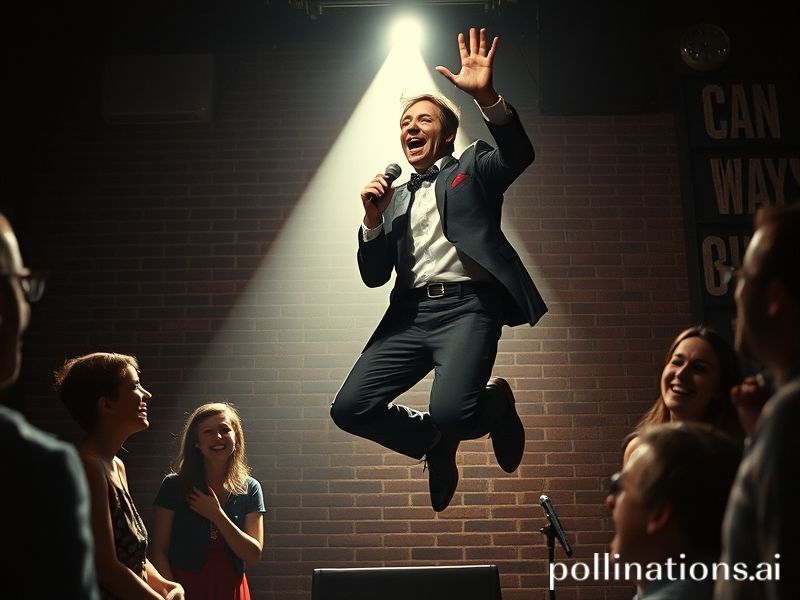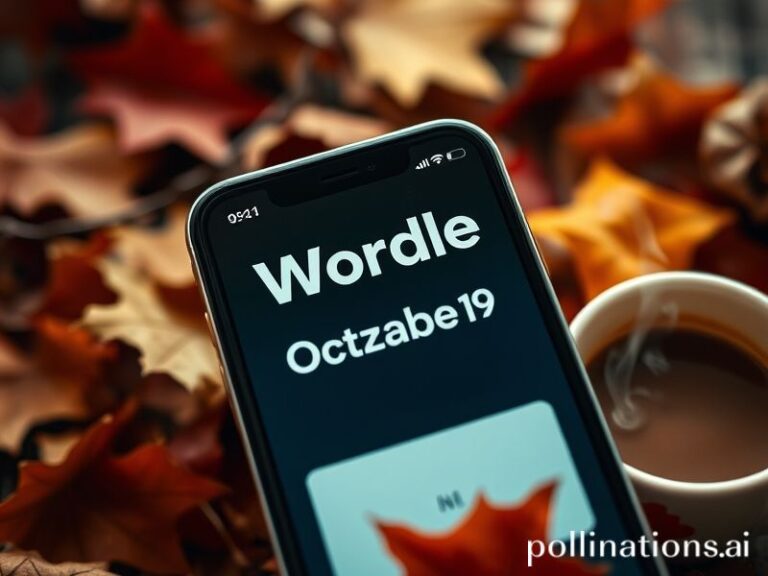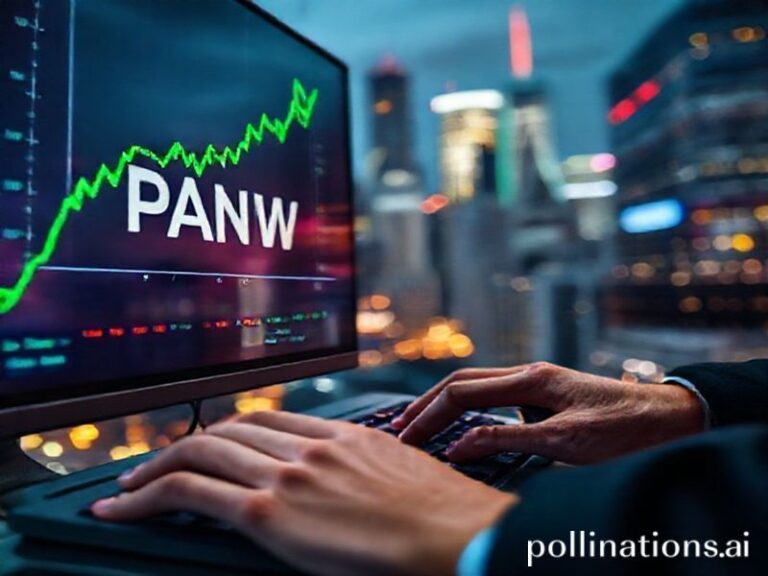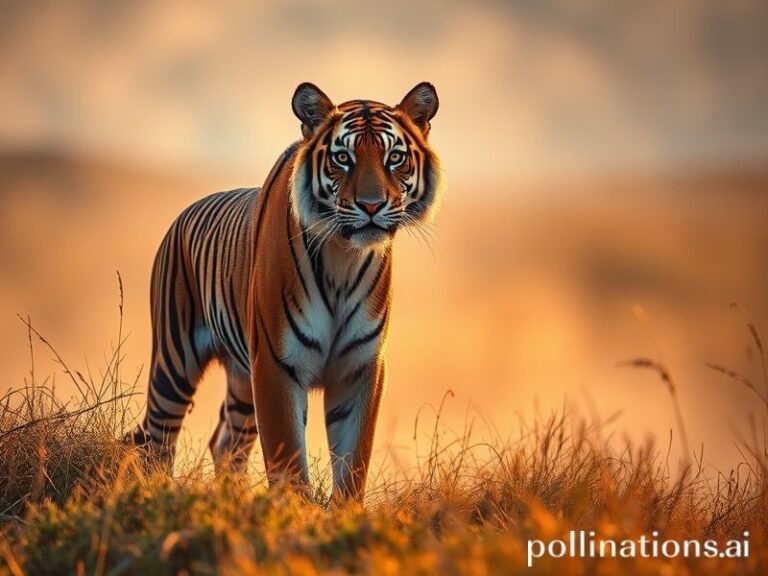Russell Howard: How a Bristolian Joke Became the World’s Cheapest Form of Diplomacy
Russell Howard and the Global Giggle-Industrial Complex
A dispatch from the front lines of exported British mirth
By the time the plane begins its descent into Singapore, the in-flight entertainment system has already offered me three separate Russell Howard stand-up specials in three different languages. Somewhere over the Bay of Bengal, a Malaysian teenager is learning the cultural nuances of Bristolian sarcasm while eating microwaved chicken biryani at 38,000 feet. This, dear reader, is the soft-power equivalent of finding a Greggs sausage roll in the diplomatic pouch: improbable, slightly greasy, yet weirdly effective.
Howard—once a gap-toothed cherub on the BBC’s Mock the Week, now a 43-year-old export commodity packaged in 4K—has become a minor but telling case study in how the West flogs its leftover satire to the rest of the planet. His jokes about NHS waiting lists and Brexit panic-buying are dubbed, subtitled, and footnoted for viewers whose own health-care systems may involve actual witch doctors or, in the case of the United States, GoFundMe campaigns for insulin. The result is a surreal cultural relay race: British anxiety sprints across continents, passes the baton of irony to exhausted translators, and collapses, panting, into a Netflix thumbnail titled “Russell Howard: Recalibrate (Thai Audio Description Available).”
The numbers are both impressive and faintly tragic. Last year, Howard’s global streaming minutes exceeded the annual GDP of Tuvalu—an island nation that, coincidentally, will probably vanish beneath rising seas before he runs out of punchlines about disposable coffee cups. International rights deals now account for 62 percent of his production company’s revenue, proving once again that nothing travels like a well-polished gag about erectile-dysfunction spam. The Chinese market remains stubbornly closed—Beijing censors object to any mention of “Winnie-the-Pooh,” “democracy,” or “Bristol”—but everywhere else, from Lagos laundromats to Reykjavik hostels, someone is binge-watching Howard pretend that world leaders are merely naughty schoolchildren who never got hugged enough.
Of course, the joke is partly on us. While Howard riffs about British political dysfunction, the planet’s actual kleptocrats take notes. In Moscow, a junior propagandist pauses the special, scribbles “weaponise self-deprecating humour,” and forwards a memo to the troll farms. In Riyadh, a consultant drafts a white paper titled “Comedy as a Service: Leveraging Western Guilt for Soft-Power Gain.” And somewhere in Silicon Valley, an algorithm decides that “relatable despair” is the next growth vertical, slotting Howard between climate-anxiety ASMR and videos of raccoons eating Doritos.
Yet the export model is fraying. International audiences have begun to notice that Howard’s material—once refreshingly parochial—now feels like a tourist souvenir: shiny, mass-produced, and slightly misaligned with local reality. His new bit about British petrol shortages lands awkwardly in Argentina, where “shortage” is spelled “hyperinflation.” Viewers in Lagos yawn at jokes about Deliveroo outages while their own Uber drivers dodge kidnapping gangs. Even the Germans—historically willing to laugh once paperwork is completed—have begun to mutter about “comedy inflation” and demand receipts.
Still, Howard persists, touring post-Brexit Europe like a stand-up Marco Polo carrying nothing but observational humour and a portable charger. In Bucharest, he discovers that Romanian teenagers know more about British parliamentary procedure than most Brits. In Seoul, an AI chatbot asks for his take on the monarchy, then immediately fact-checks him in real time. The result is a feedback loop of diminishing returns: the faster the world absorbs his jokes, the quicker they expire, like diplomatic visas in a pandemic.
The broader significance? Howard’s global jaunt reveals a planet desperate for common reference points, even if that commonality is a punchline about oat-milk lattes. In an era when trade wars, supply-chain collapses, and apocalyptic weather compete for headlines, shared laughter is the last non-toxic export left in the imperial cupboard. It won’t reverse sea-level rise, but it might—momentarily—drown out the sound of glaciers shearing off into the ocean.
So here we are, orbiting above the same warming rock, chuckling at the same Bristolian accent describing his mother’s WhatsApp forwards. It’s not world peace, but it’s cheaper than therapy and marginally more effective than the UN Security Council. If that isn’t the definition of twenty-first-century diplomacy, I don’t know what is.







